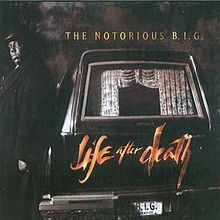

- LIFE AFTER DEATH BIGGIE COVER DRIVER
- LIFE AFTER DEATH BIGGIE COVER FULL
- LIFE AFTER DEATH BIGGIE COVER LICENSE
- LIFE AFTER DEATH BIGGIE COVER PROFESSIONAL
The last thing he wanted was Biggie or Puffy to be aware that anything had gone awry. “Fortunately, I had a lot of other cameras.” “I almost threw up,” Lavine said with a laugh. His assistant Karen Pearson whispered, “It’s not in the truck … it’s missing.” A bag with $15,000 worth of camera equipment had been stolen while they were loading the truck outside of Lavine’s Fifth Avenue studio earlier that day. Then, during the shoot, Lavine asked for another camera. He would literally be getting in a lot of the shots with Biggie.” He was like a guy who wanted to be in the picture. Groovey Lew was trying to get the styling right, and Puffy was yelling about the buttons. I found a spot, and then we had a smoke machine to give it some atmosphere. “I wanted to have some space around the hearse,” Lavine explained. Lavine scouted a location within the cemetery where he could visually tell the story of Life After Death. “Back in the early ’90s, you couldn’t get away with doing weird, arty photographs for the urban market.” “I was told, ‘Get a hearse.’ That’s all the direction I got.” In this situation, I was given certain elements: I didn’t pick his clothes, and I didn’t decide ‘cemetery.’ There’s more opportunity for failure, but there’s a better chance for greatness.
LIFE AFTER DEATH BIGGIE COVER PROFESSIONAL
Those who knew him described him as grumpy, but he maintained a professional demeanor throughout.Īlthough the cover has been described as having overtones of Alfred Hitchcock, Lavine said he doesn’t use references. Big was walking with a cane, his left leg shattered in a car accident months earlier. Jackie Robinson is buried there, as well as Arturo Alfonso Schomburg, Eubie Blake and pioneering actress Rosetta LeNoire. The graveyard is seated on a promontory on the border of Brooklyn and Queens and has majestic views of Manhattan, the Atlantic Ocean, the Long Island countryside and even the distant blue hills of Connecticut.

We scrambled, and we found the proper graveyard.”Įstablished in 1848, Cypress Hills Cemetery is as proper as it gets.

I took photos up to Puffy’s office and he was like, ‘These are terrible! Find a better graveyard!’ And he was right. I hired a location scout to find a graveyard. But the album, originally scheduled for a Halloween 1996 release, was pushed to ’97. He was just stating the facts from the other side of the grave.īad Boy Records had grand plans for Life After Death.
LIFE AFTER DEATH BIGGIE COVER FULL
He wore it full and proud, looking over his shoulder as if he already knew.
LIFE AFTER DEATH BIGGIE COVER LICENSE
He stared us in the face while leaning against a hearse that bore the license plate “B.I.G.” There were no sunglasses to hide his lazy eye. The album’s cover art featured the man formerly known as Biggie Smalls in a long black coat and black bowler. 1 on the Billboard 200 in the space of a week. It sold 700,000 hard copies almost immediately, jumping from No. rose again: The double album Life After Death was released March 25. He was rushed to nearby Cedars-Sinai Medical Center and was pronounced dead at 1:15 a.m.
LIFE AFTER DEATH BIGGIE COVER DRIVER
The driver rolled down his window, drew his weapon and fired. A dark Chevrolet Impala SS pulled up along the passenger side. The SUV in which he was traveling stopped at a red light just 50 yards from the venue. It remains unsolved.Īt 12:30 a.m., Wallace left a Vibe magazine Soul Train Music Awards after-party at Los Angeles’ Petersen Automotive Museum. On March 9, 1997, Christopher Wallace, aka The Notorious B.I.G., was gunned down in a drive-by shooting. Twenty years have passed, but the shock is still fresh - and still incomprehensible.


 0 kommentar(er)
0 kommentar(er)
